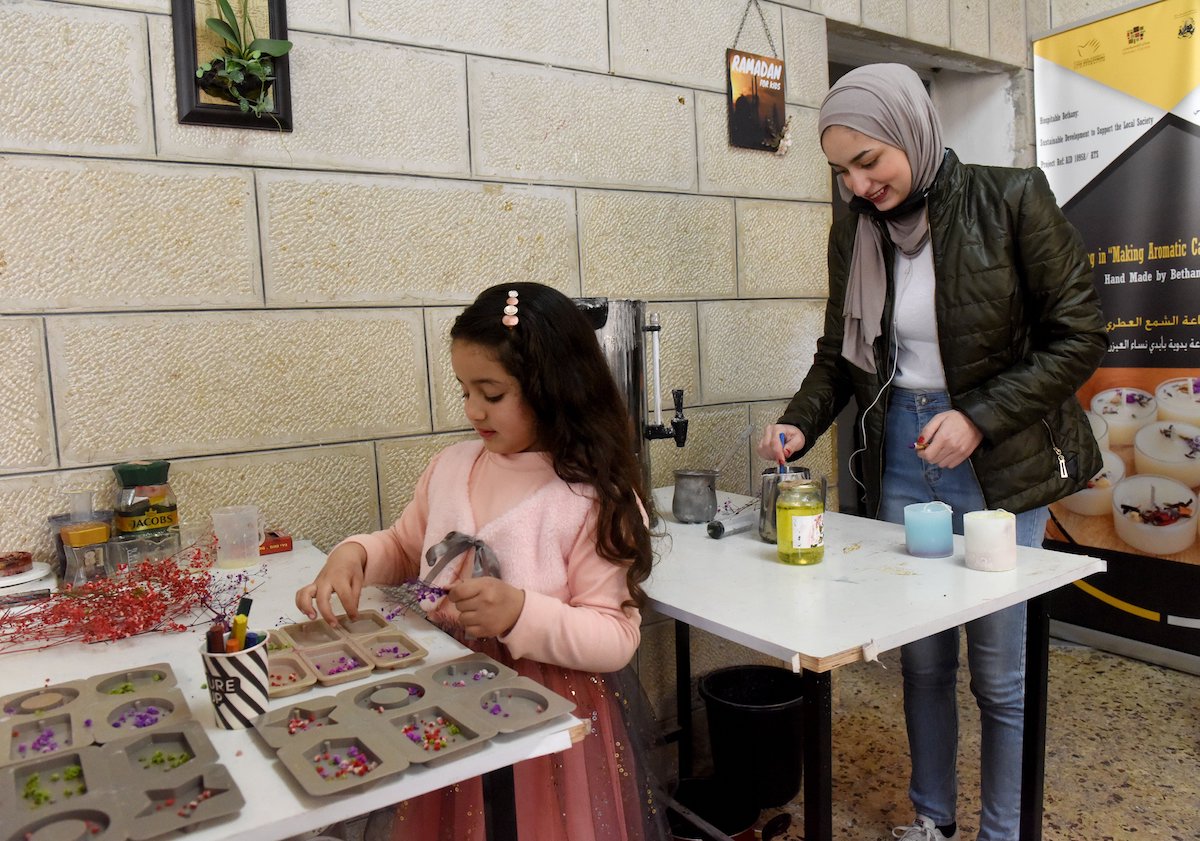BETHANY, West Bank (CNS) — When Mary, the sister of Lazarus, anointed Jesus’ feet days before his crucifixion, she used the precious and expensive spikenard oil, which originates in the Himalayan Mountains of India and was brought to the Holy Land through the ancient spice trade.
Now, Palestinian women are using spikenard — mentioned in several places in the Gospels as “nard” — as well as rose, jasmine, honey, ambra and other essential oils to infuse candles — and help support their families. Today spikenard oil, while still expensive, is much easier to acquire.
In June, the Pro Terra Sancta Association opened a candle-making workshop for women not far from the Franciscan Church of St. Lazarus complex, where traditionally Jesus is believed to have raised his friend Lazarus from the dead. Bethany Candles, part of the three-year Hospitable Bethany project, it was meant to provide a source of income for women, who could sell the candles to pilgrims and visitors.
Pro Terra Sancta joined with the Al Hana’a Society for Women Development to bring 15 women to the initial workshop courses, with half of those asked to remain to launch the candle-making business. With no pilgrims, keeping all the women employed is not sustainable at the moment, explained said Osama Hamdan, coordinator of the Hospitable Bethany project, but organizers hope to bring more of the women to work when the situation improves.
“We are building for the future,” said Hamdan. “If we think of today, we might as well just stay at home.”
Marah Abu Rish, 25, started working at the workshop four months ago after being laid off from an office job at a hospital because of COVID-19. She and her older brother are the only breadwinners for their family and, when she was laid off, she became so sick with anxiety she had to be hospitalized, she said.
“I am the oldest girl, I need to help support my family,” she said. “When I was invited to come work here, I was in the hospital with my father, but I was so happy for the work I came the very next day.”
After years of administrative work, she said, she has found a love for creative work, and she experiments making different candle styles and designs.
“I discovered myself. I feel like an artist,” she said. “I am so proud of myself.”
As part of the course the women, who are all Muslim, took a tour of the Church of St. Lazarus.
Many Palestinian women cannot go out to work, but the candle workshop allows them to collaborate with each other to earn a living, said Ola Abu Damous, director of the Al Hana’a Society. Damous, 60, is a widow who put all eight of her children through college on her own. She said she hopes the candle making will help other women not have to struggle financially as she did.
Since the pilgrim market is closed to them now, the women have designed another line of candles intended for the local market, to be given as small gifts at weddings or in honor of a birth.
Though an online store for international sales is planned, Abu Rish and some of the other younger women have already taken the initiative to market the local candle line via an Instagram account under the name Lavender.Store9 as they wait for the pilgrims to return.
The plan also includes opening a gift shop adjacent to the church site.






